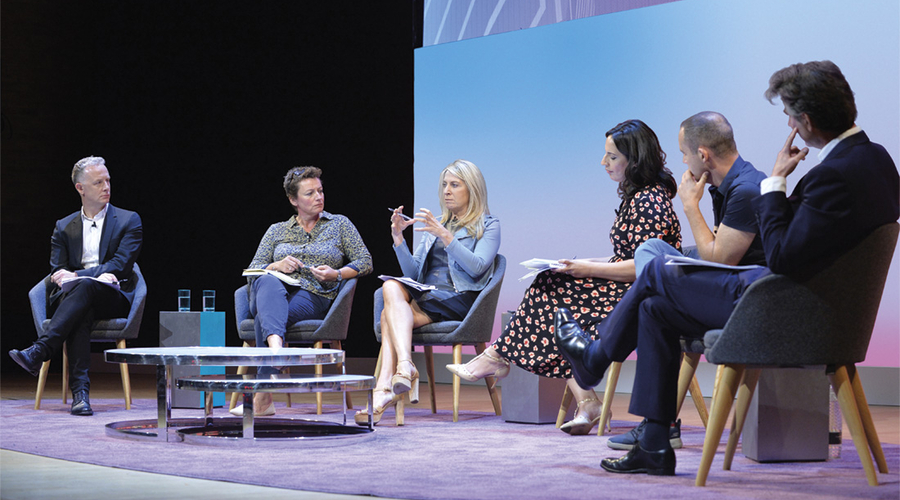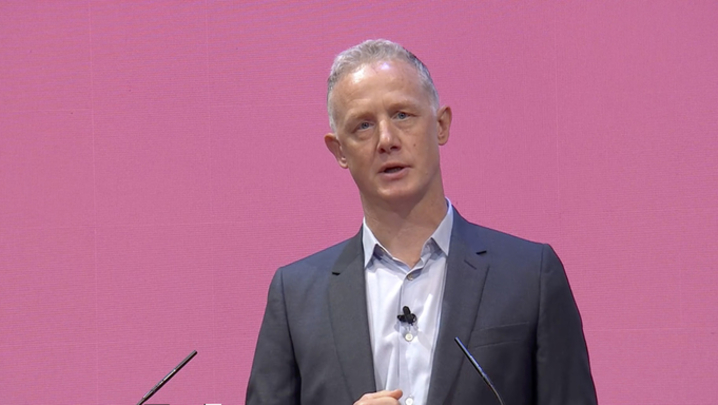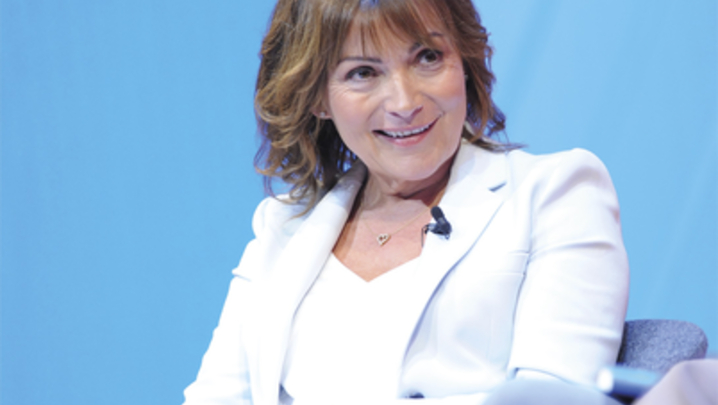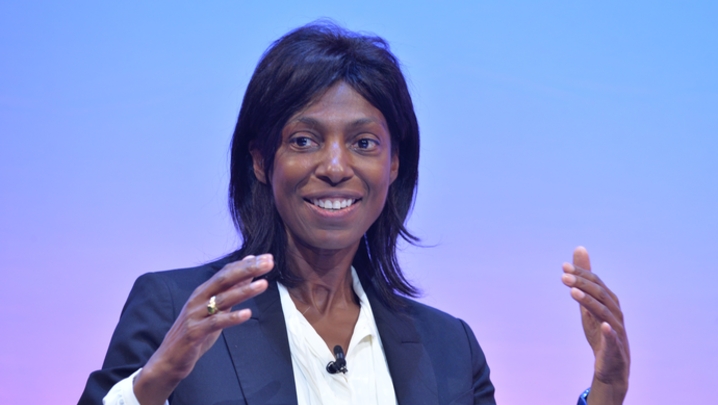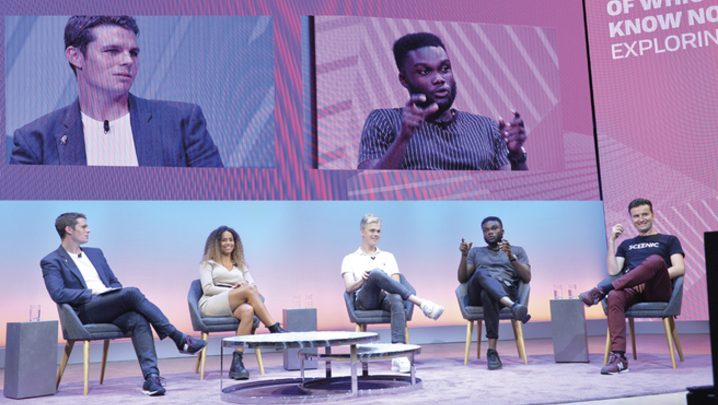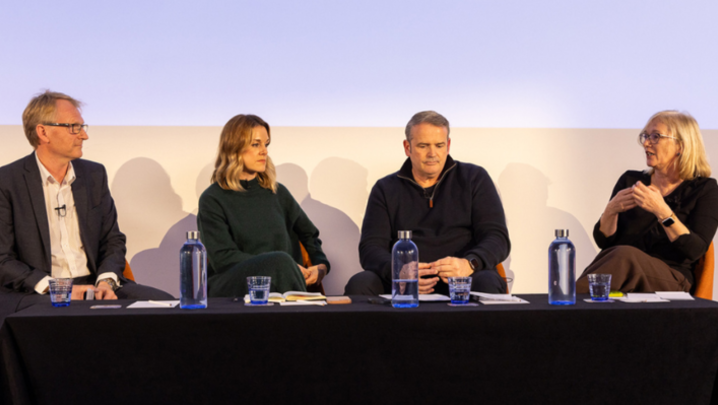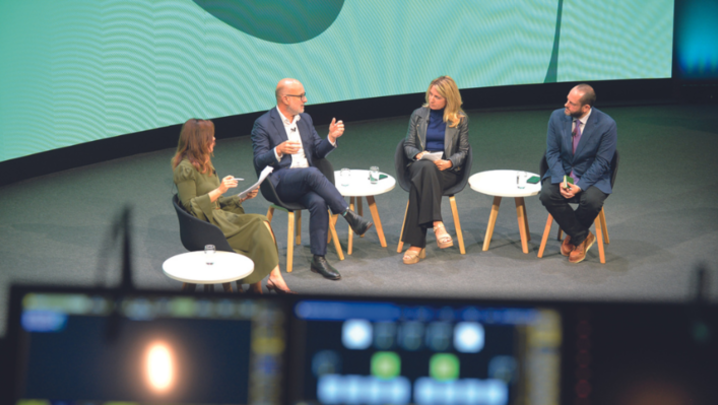How well are TV companies and their online rivals doing at winning and keeping public confidence?
Trust isn’t scientific, it’s instinctive, it comes from the gut, not from the brain,” Martin Lewis told the Cambridge audience, and he should know. The founder of MoneySavingExpert.com, consumer business warrior and the man who sued Facebook and won is also the most trusted man in Britain, according to Google.
And he explained to the packed hall of delegates: “Trust is not a function of your marketing departments, it’s a function of the decisions you make and of how you choose to operate and treat your viewers and stakeholders.”
Lewis noted that trust needn’t come from the impartiality and balance often touted by PSBs. Instead, he said: “It comes from honesty and transparency; I am the money-saving expert, I do what it says on the tin.
“A trusted broadcaster, in my view, is Fox News,” he went on. “It has an agenda and we know what it is. It appeals to a certain demographic who will trust it over everyone else. Fox knows and appeals to its audience.
“We can’t automatically assume trust is crucial to everything you do. If you want the news, of course you’ve got to trust it, but if you’re watching Love Island, what is trust in a produced reality? What you have to do as a broadcaster is decide: do I want to be trusted?”
Just one thing can make or break a fragile contract of trust. From the People’s Panel in Leeds, one long-time BBC viewer, pensioner Stephen, cited the Cliff Richard debacle as the reason he no longer switches on BBC News. He felt it had broken his faith in it: “The BBC hasn’t done itself any favours even though it is the best of them.”
Vikki Cook, Ofcom’s director of content media policy, expanded on research published by Edelman, revealing that trust in PSBs remains high. She said: “Consumers might use aggregators for speed, but they don’t trust them. Once they see a headline, most people will then seek out that news from a PSB and get that trusted source. This suggests that we are doing something right with our regulation.”
Where it gets harder to quantify trust is in the Wild West of less-regulated online services. Speaking from the People’s Panel, teenager Maria revealed that she never watches TV news: “I can’t find myself sitting there for half an hour watching it. I get it from my app. I get notifications with different headlines and if I find one interesting, I’ll research it online, read different articles, form an opinion.”
"Underrepresented communities in the UK are feeling less and less connected to television"
YouTube was slammed for posting conspiracy theory videos around the anniversary of 9/11, but Ben McOwen Wilson, its UK director, defended the need to constantly balance prudence with protection of free speech.
He explained: “On our platform, anyone can upload anything you can make a video of. Our role is to remove anything that breaches community guidelines, anything that is in breach of the law, or of our view around hate speech. We’ve removed Sandy Hook conspiracies which, in our view, were harmful and offensive.
“On conspiracy theories, where there is no actual harm, then they remain on our platform. There’s a knowledge panel, which will refer you out to encyclopedias.”
He added: “We must balance here the value that openness brings. It has obvious downsides, but the value that openness brings means that a guy who headlined at Glastonbury this year [Stormzy] was an unsigned artist on a platform for eight and a half years before a label signed him up. That openness has societal value, but it comes at a cost, and we are working incredibly hard to take care of those costs.”
He was quick to pass the baton back to other broadcasters, however, noting that YouTube’s appeal lay in “great content from authentic voices that look and sound more like them than any other platform that’s out there. That is something that, at the moment, television isn’t doing. It is giving them a voice and showing them the world [and it] resonates strongly with our younger viewers.
“Under-represented communities in the UK are feeling less and less connected to television and young people are watching less and less TV. If that clarion call is not heard, then I worry,” he said.
Fresh from his legal victory over Facebook’s posting of scam ads, Lewis took issue with those hiding behind “platform” status to avoid regulation, saying: “I have massive trust issues with any algorithm-based delivery services. When you publish an advert, you’re a publisher and you should be legally liable like a publisher.”
This chimed with teacher Marie, speaking to the convention from the People’s Panel. She explained her concerns about children in her classroom accessing information and news via social media and various platforms. She said: “They’re believing the comments, and that’s affecting them. Children are not emotionally or mentally ready; they’re quite receptive, so it’s causing a lot of stress and anxiety.
“During the stabbings in London, a little boy raised his hand and asked, ‘Am I going to get stabbed?’ The filtering is not there.”
"If you do want to be trusted, always do the right thing, don’t just be seen to be doing the right thing"
Vikki Cook agreed it was a complex area, but asked: “How do you go about regulating online? We have enormous skill at regulating broadcasters. You simply cannot lift and shift that framework into an online world. You have to balance the most harmful content with freedom of expression. Will there have to be some form of regulation? Yes.”
Deborah Turness, President at NBC News International, explained how her company was having to evolve to accommodate younger viewers, including creating a news show on Snapchat that she said now has more than 20 million subscribers. She explained: “This is a reaction to the viewers’ changing needs. They need more transparency. They crave news organisations that will open up and let them in, share more of our processes, not just what we know but how we know it. The next generation of news products needs to address that.”
For Edelman’s UK CEO Ed Williams, a marriage of the values of the old and technology of the new was required.
“Our traditional broadcasters have to thrust forward in technology, putting as much time, effort and cash into development as they can to reach those younger audiences,” he said. “But it’s just as important to harness the support of government and regulators, to help British television to continue to appeal to all audiences, to continue to play its critical role at the heart of our nation.”
He defended those online platforms, such as YouTube, that have also had to adapt as their platforms’ status has grown – and increasingly turned them into publishers with responsibilities for their audiences:
“The red mist comes down when people talk about YouTube and Google. It’s very clear that they are now taking [their responsibility] seriously. Some would say it’s way too late, but they are taking it seriously.”
As all broadcasters, new and old, continue to evolve, they may well have Martin Lewis’s words ringing in their ears. He finished his presentation with a call to arms: “How trusted do you want to be? If you do want to be trusted, always do the right thing, don’t just be seen to be doing the right thing.
“And you have to do it from day one. If you want to be trusted, be trustworthy.”
Session Nine, ‘Who you gonna trust?’, featured presentations from Martin Lewis, founder, MoneySavingExpert.com, and Ed Williams, CEO UK and EMEA vice-chair, Edelman. The panellists were: Vikki Cook, director, content media policy, Ofcom; Ben McOwen Wilson, MD, YouTube UK; and Deborah Turness, President, NBC News International. It was chaired by Aasmah Mir, TV and radio broadcaster, and produced by Martin Frizell and team. Report by Caroline Frost.

